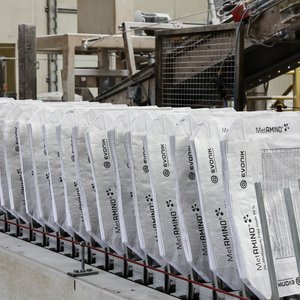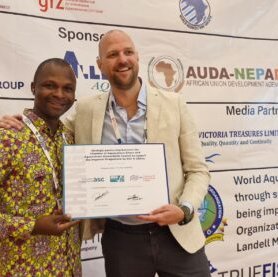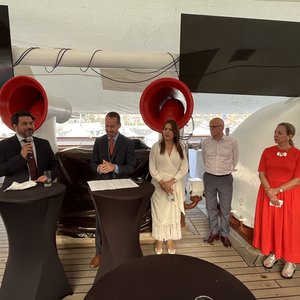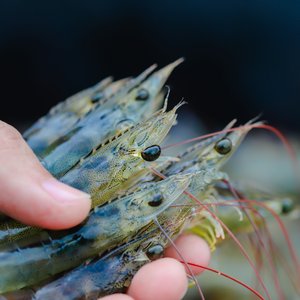High levels of plant proteins in fish feed result in less protein deposited in Atlantic salmon
In a feeding trial, farmed Atlantic salmon were given feed with a high content of plant protein. Only 15% of the protein was marine protein. The results from the National Institute of Nutrition and Seafood Research (NIFES) show that less protein is deposited in the salmon when it is given feed containing high levels of plant protein.
Atlantic salmon in salt water weighing around 640 grams were given either a feed containing mainly fish meal as protein source or a feed containing a high level of a plant protein mixture (85 % of the protein) with soy, wheat and corn gluten. The plant protein feed also contained some fish meal, fish protein concentrate and squid, corresponding to totally 15 % marine protein. The trial period was three months. Squid was added to the plant protein feed in order to enhance taste, but the salmon still ate less of this feed.
"The Atlantic salmon in this study seemed to adapt to the plant protein diet by an alteration in the growth hormones", said researcher Ernst Morten Hevrøy at NIFES.
"We measured the gene expression of several growth hormones in the brain, liver and muscle. The growth hormones are naturally present in the fish` organs. There was a clear tendency towards down-regulation of the growth hormone IGF-I in white muscle, but not in the other organs". It is therefore very likely that less of this hormone is produced when the salmon is fed a high proportion of plant protein. In our study, this resulted in 31% less protein deposited in the salmon, said Hevrøy.
Previous research, where Atlantic salmon has been given plant-based feed for a whole year, has shown a satisfactory growth, but still a lower growth than when Atlantic salmon was fed a feed based on fish oil and fish meal. The slightly lower growth found in previous studies with high levels of plant proteins (80 %) in the diet has been mainly been explained by a lower feed intake.
"The present study shows that farmed salmon does not achieve maximum growth or feed utilisation when the level of plant protein in the feed exceeds a certain limit. This can be explained by the slightly lower feed intake and the change in the hormones which control growth", said Hevrøy.
"Salmon which were given feed with a high level of plant protein achieved 25 % less growth than salmon which were fed traditional feed with a higher level of fish meal. The composition and quality of the plant protein are factors which may affect feed intake and growth. Future studies will show whether it is the plant-based diet or the reduced feed intake that contributes most to the reduced growth".
This study differs from previous ones in that both the control feed and the plant protein feed contained the same amount of the different essential amino acids and the same balance of fat, carbohydrates, proteins, trace elements and minerals, even if the raw plant material sources were different.
"The Atlantic salmon in both groups thereby had access to the same quantity of nutrients. This kind of feeding trial with a link to endocrine growth regulation has not previously been published on Atlantic salmon", explained Hevrøy.
Analysis of the amino acid composition in the salmons’ organs showed that more of the amino acids were used for maintenance than growth in Atlantic salmon fed a high level of plant protein.
"The study shows that it is important to compose a fish feed which gives the best possible utilisation of the marine proteins. This is especially important in the light of current developments where fish meal to a less or greater extent is being replaced by plant protein in grow-out feed for Atlantic salmon", said Hevrøy.
Collaborating partners in the study: Ewos Innovation Dirdal (Norway) and the Institute of Marine Research, Austevoll (Norway)
Based on the scientific publication:
Effects of a high plant protein diet on the somatotropic system and cholecystokinin in Atlantic salmon, Salmo salar L. Comparative Biochemistry and Physiology, by Hevrøy, E.M., El-Mowafi, A., Taylor, R., Norberg, B., and Espe, M.










